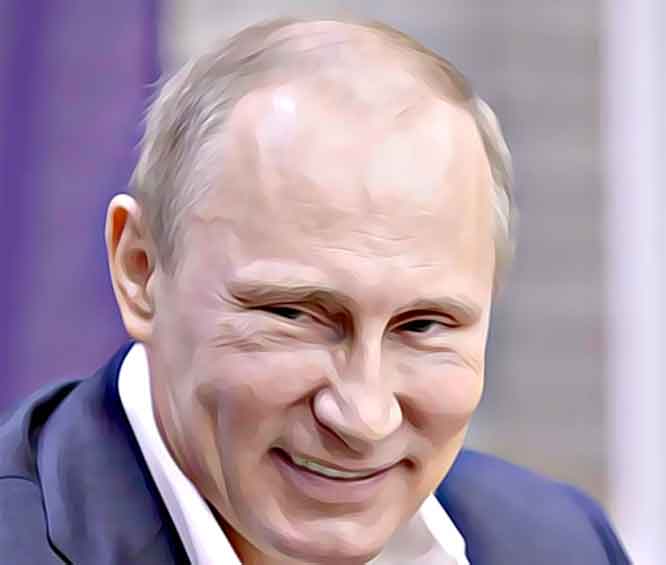
Biden says "yes," and his administration, rightly, says "no," or at least, "we are looking into it."
Biden's declaration went uncontradicted a little longer than his statement that Vladimir Putin has to be removed from power, but ultimately experienced the same fate.
In prepared remarks in Iowa on Tuesday, Biden said the prices we pay in the United States shouldn't hinge "on whether a dictator declares war and commits genocide half a world away."
"Yes, I called it genocide," Biden told reporters afterward. "Because it has become clearer and clearer that Putin is just trying to wipe out the idea of even being able to be a Ukrainian." He added that "we'll let the lawyers decide internationally whether or not it qualifies, but it sure seems that way to me."
It's a time in our culture when hardly anyone exercises great care with words, but it shouldn't be too much to ask that the president of the United States show more discipline than most.
Instead, Biden continues in the tradition established by Donald Trump of a president routinely saying things at odds with the policy of his own administration.
Just last week, Biden was still refusing to say that Russian atrocities rose to the level of a genocide, and his national security adviser Jake Sullivan was backing him up, arguing that there wasn't enough evidence for that charge. When last weekend Jake Tapper of CNN pressed him on the question, Sullivan wouldn't go near the word.
Now, Biden officials are saying that the president "spoke from his heart" (undersecretary of State Victoria Nuland), "was speaking to the impression that he had garnered" (State Department spokesperson Ned Price), and "is allowed to make his views known at any point he would like" (White House press secretary Jen Psaki).
Once again, the walk-back is appropriate. There are many things that Russia can justly be accused of in Ukraine — from launching a war of unprovoked aggression, to displaying depraved indifference to the lives and welfare of civilians, to carrying out war crimes — but committing genocide is not one of them.
The concept of genocide has to mean something more than doing truly appalling things that should be condemned by all decent people, or the word loses its meaning.
The United Nations defines genocide as acts "committed with intent to destroy, in whole or in part, a national, ethnical, racial or religious group."
The Russians are guilty of great savagery in Ukraine, but there is no evidence that they intend to exterminate the Ukrainians.
Their initial plan was to sweep President Volodymyr Zelenskyy from power quickly and install a pro-Russian government. Every indication is that, if this possibility had truly been in the offing, the Russians would have been happy to have a puppet preside over a pacified Ukraine full of quiescent Ukrainians — in fact, they seem to have erroneously assumed that this is what was going to happen. Now, having misjudged the courage and national spirit of the Ukrainians (and the stalwartness of the West), the Russians have retreated from Kyiv. The fall-back strategy seems to be to take as much territory in the east and the south as possible in a prelude to forcing an unfavorable settlement on the Ukrainians. This is a cynical approach with all the subtlety of a Grad missile launcher, but it's not genocide, either.
If there's no doubt about the viciousness and blood-thirsty criminality of the Russian campaign, it's not specific to Ukraine. The Russians employed basically the same tactics in Chechnya, Syria and Afghanistan before that. This is the Russian way of war.
Even in Ukraine, it's not as though the Russians are making cultural and ethnic distinctions in their brutality. The watchword for the scorched-earth nature of their tactics is Mauripol, a predominantly Russian-speaking city with a large Russian population.
Zelenskyy praised Biden for making the accusation of genocide. It makes sense that the Ukrainians want the charge to be part of the conversation — there's no better way to delegitimize their Russian invaders.
There is no formal obligation to do anything to stop a genocide. Yet, it's such a monstrous crime, harkening back to the Holocaust, that it creates considerable moral pressure to act.
This is another reason that it's so strange that Biden used the term. He wants to stop short of a total effort in Ukraine and instead make fine-grained distinctions among various forms of support we provide to the Ukrainians and how we do it — offensive versus defensive weapons, for instance.
If Russia is committing a genocide, how can we sustain, say, our refusal to let the Ukrainians fly MIGs off of Ramstein Air Base? When confronting such an enormity, it seems a minor risk to take.
At the end of the day, though, the word applied to Russia's atrocities doesn't matter much. We aren't going to seek out a direct NATO clash with Russia regardless, nor should we. So whether Biden or his administration is right about the terminology, the only sensible and realistic response is to focus on getting to the Ukrainians every weapon they need as rapidly as possible.
The test in Ukraine then isn't (thankfully) what Biden says, but what he does.
(COMMENT, BELOW)


 Contact The Editor
Contact The Editor
 Articles By This Author
Articles By This Author